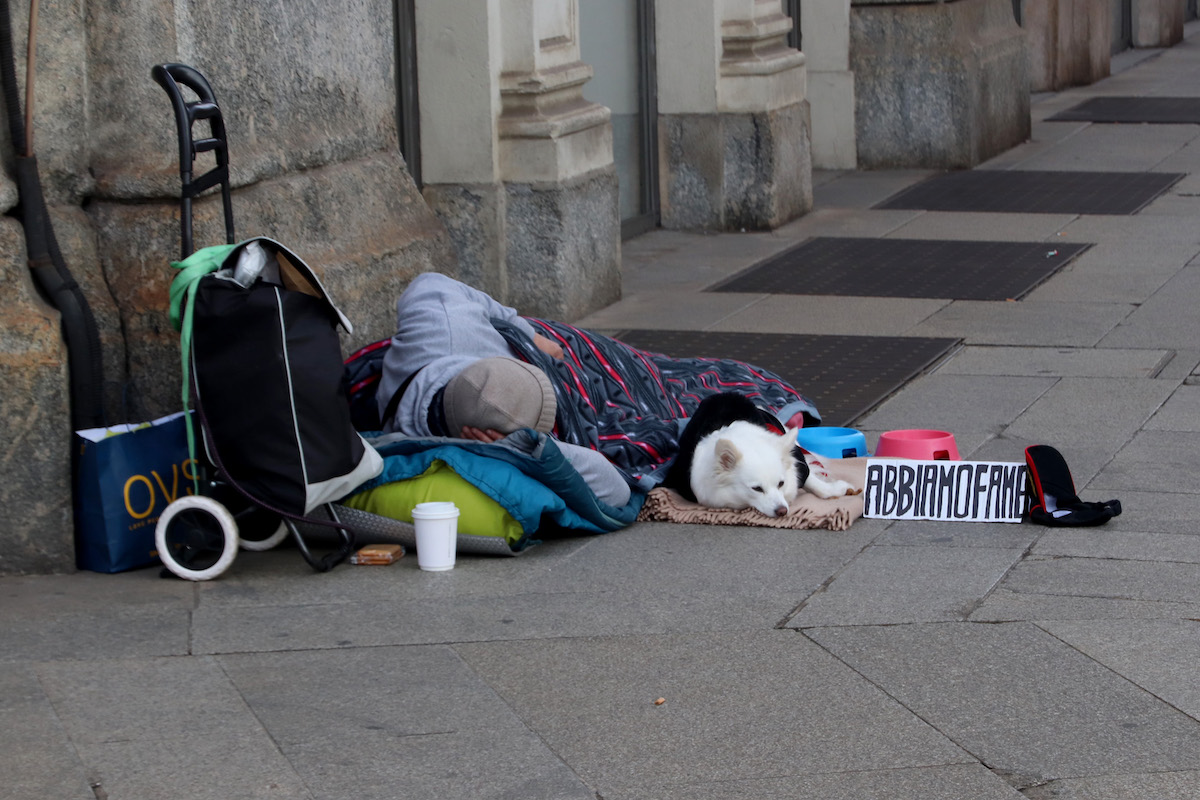The number of Italians at risk is decreasing, but those in serious difficulty are increasing. The expert speaks: “Bonuses and temporary subsidies do not stop poverty”
The risk of poverty is decreasing, but extreme poverty gives no respite and is increasing. An antithesis, or perhaps a paradox. Let’s look at the numbers: if on the one hand 2023 saw a slight decline in the number of Italians at risk of poverty or total exclusion (22.8% in 2023 against 24.4% in 2022), on the other hand there was a decisive increase in those living in conditions of “severe material and social deprivation” (4.7% compared to 4.5% the previous year). There are over 14 million, more than a quarter of the Italian population, struggling to move forward. Data in hand, it is inevitable to ask whether the subsidies and tools put in place by the Meloni government are actually helping the majority of Italians. To clarify this point, Affaritaliani.it interviewed the sociologist, welfare expert, philosopher and professor at the University of Turin, Chiara Saraceno.
Professor, the number of people at risk of poverty based on income is decreasing, but those who are worse off are increasing. How can this phenomenon be explained?
First of all it is essential to clarify one point. When we talk about the risk of poverty we are referring to relative poverty, different from absolute poverty, which instead indicates the possibility of consuming a certain basket of goods. Precisely in reference to absolute poverty, the latest data (those dating back to 2022) are not so optimistic, and even the Istat preview on the 2023 data signaled a stable trend compared to 2022. So there is no improvement.
Those who were previously below the relative poverty threshold are now a little above it, but chhe was really poor, he continues to be so. This means that the improvements that have been made in the work are not able to bite. And among the absolute poor we must also count the families of workers with low wages affected by inflation. All this indicates that improvements or increases in employment are not enough to attack poverty where it is most serious.
Yet, according to the report’s data, the improvement in the risk of poverty was strongly driven by the increase in employment and the introduction of the universal single allowance. So the so-called “Melon cure” isn’t bearing fruit?
The single allowance had been introduced even before the current government, and then employment increased in all European countries, it is an overall fact, which does not only concern Italy. They are simply signs of recovery from the pandemic. The difference, perhaps, is that in our country there has also been an increase in permanent employment, and not just precarious employment. The point is that the poorest are in the precarious situation, and involuntarily.
So?
Therefore the labor market alone cannot solve the problems of poverty.
And the bonuses and subsidies implemented by the government fail to “stop” this situation?
They help, but not enough, and those few bonuses made available are also temporary. In some ways the Meloni treatment has even reduced support. For example, even if it is true that the replacement of the citizen’s income protects families with children, with minors who are entitled to the Adi (inclusion allowance), between the functioning of the equivalence scale and the fact that adults are excluded from the count, even those families with minor children who previously received citizenship income now no longer receive it.
And what do you think of the “befana” bonus or 100 euro bonus?
Another limited bonus that will arrive only in January 2025 with a check of 77 euros, calculated based on the months of work. So, those who worked less will receive less. And there’s more: this bonus is only for those who earn less than 28,000 euros per year. In short, a mockery for the poorest.
